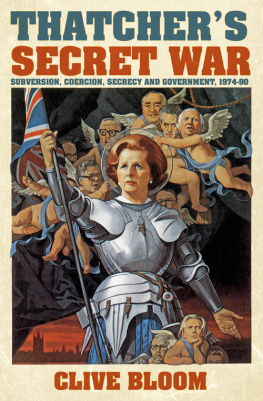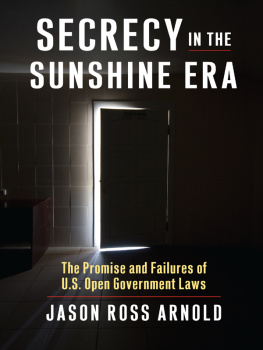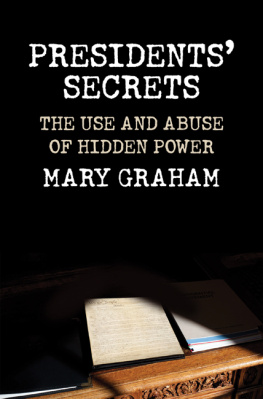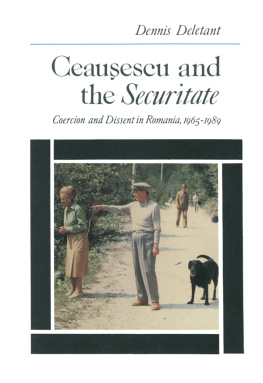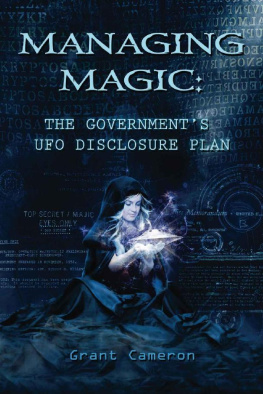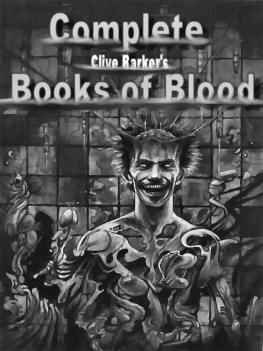Clive Bloom - Thatchers Secret War: Subversion, Coercion, Secrecy and Government, 1974-90
Here you can read online Clive Bloom - Thatchers Secret War: Subversion, Coercion, Secrecy and Government, 1974-90 full text of the book (entire story) in english for free. Download pdf and epub, get meaning, cover and reviews about this ebook. year: 2015, publisher: The History Press, genre: Politics. Description of the work, (preface) as well as reviews are available. Best literature library LitArk.com created for fans of good reading and offers a wide selection of genres:
Romance novel
Science fiction
Adventure
Detective
Science
History
Home and family
Prose
Art
Politics
Computer
Non-fiction
Religion
Business
Children
Humor
Choose a favorite category and find really read worthwhile books. Enjoy immersion in the world of imagination, feel the emotions of the characters or learn something new for yourself, make an fascinating discovery.
- Book:Thatchers Secret War: Subversion, Coercion, Secrecy and Government, 1974-90
- Author:
- Publisher:The History Press
- Genre:
- Year:2015
- Rating:5 / 5
- Favourites:Add to favourites
- Your mark:
- 100
- 1
- 2
- 3
- 4
- 5
Thatchers Secret War: Subversion, Coercion, Secrecy and Government, 1974-90: summary, description and annotation
We offer to read an annotation, description, summary or preface (depends on what the author of the book "Thatchers Secret War: Subversion, Coercion, Secrecy and Government, 1974-90" wrote himself). If you haven't found the necessary information about the book — write in the comments, we will try to find it.
Clive Bloom: author's other books
Who wrote Thatchers Secret War: Subversion, Coercion, Secrecy and Government, 1974-90? Find out the surname, the name of the author of the book and a list of all author's works by series.
Thatchers Secret War: Subversion, Coercion, Secrecy and Government, 1974-90 — read online for free the complete book (whole text) full work
Below is the text of the book, divided by pages. System saving the place of the last page read, allows you to conveniently read the book "Thatchers Secret War: Subversion, Coercion, Secrecy and Government, 1974-90" online for free, without having to search again every time where you left off. Put a bookmark, and you can go to the page where you finished reading at any time.
Font size:
Interval:
Bookmark:


Prospero: You do yet taste
Some subtleties o th isle, that will not let you
Believe things certain.
William Shakespeare , The Tempest V.I
Next to these public things were the dreams of old women, or, I should say, the interpretation of old women upon other peoples dreams; and these put abundance of people even out of their wits.
Daniel Defoe, A Journal of the Plague Year, 1722
The truth is an acquired taste.
Gordon Thomas and Martin Dillon, The Assassination of Robert Maxwell
Government is not about truth.
Clive Ponting, Whitehall: Tragedy & Farce
In a democracy, government claims that only the guilty have anything to fear are as insidious as they are specious.
Andrew Neather, Evening Standard , 15 May 2014
For our three little musketeers,
who will sort this mess out when were gone.
AND PERMISSIONS
The author would like to thank the History Press for permission to reprint an extract from his book Restless Revolutionaries: A History of Britains Fight for a Republic (Stroud, 2010)
The author would like to thank Gerry Gable; James Goddard of the TUC Library at the London Metropolitan University Archives; the Margaret Thatcher Archives; the archivists of the Scottish National Party and those of the National Archives of Scotland; Maria Castrillo, curator of Political Collections at the National Library of Scotland; the librarian, the Library and Museum of Freemasonry; John McGill, founder of Scotland-UN; David Powell, archive manager at D.C. Thomson for the Sunday Post ; Professor Warren von Eschenbach of the University of Notre Dame; Lesley Kacher; and Mark Beynon and Lauren Newby at The History Press
What machinations brought Thatcher to power and what secrets helped sustain the Thatcherite revolution? This is the story of the state-within-the-state which warped Thatchers premiership from its inception. How was the population convinced to support an ideology designed to defeat those whom Thatcher defined as the enemies within: everyone she could not see eye to eye with? It is also about how her supporters recognised whether a civil servant, journalist, union leader or simple member of the public was one of us rather than one of them: the subversive and unwashed socialists of whom her government was so wary. It led to a world of dirty tricks and murder.
The central argument of this book is that there was an undeclared and internal cold war fought throughout the 1980s in which rogue elements in the government, military and secret services seemed to have free rein to distort facts and even kill opposition voices under the camouflage of black propaganda.
Everything in this book is true; everything is false. It all depends on which side of the looking glass one is standing. There will be those who might be sceptical that the evidence represented here is only a multiplicity of coincidences, nevertheless, the coincidences do start to make patterns a matter of point of view, perhaps.
This is not another book on the story of Thatcher or a history of her premiership; nor is it a retelling of the long (and often secret) war with the Irish Republican Army. However, it is about aggression and the world that partially grew from the Irish Troubles, much of which was exported to mainland Britain and much of which was kept secret.
My central argument is that there was not only a secret and undeclared internal cold war fought throughout the 1980s (a war that had started in the 1970s), but that the consequences of the decisions and events that occurred in those years have huge implications for the importance and role of the state as it has evolved into the twenty-first century. It is in the years between the mid 1970s and the early 1990s that the state became a direct arm of government policy; one which pursued an undeclared agenda unexamined by parliament or voters. This led, by degrees, to the secret bureaucracy of the state metamorphosing into the real and uncontrolled hidden political power in Britain today a power no longer decided or directed by parliamentary process.
This was a particularly contradictory situation, as Thatcher always seemed opposed to the wets of the old-boy networks who made up the servants of the state. Indeed, after the final exposure of Sir Anthony Blunts role as a double agent in 1979, Thatcher was apparently prepared to expose the system and destroy it. Sir Bernard Ingham, Thatchers press secretary, recalled her attacking the duplicity of those controlling MI5: I believe she did it because she didnt see why the system should cover things up. This was early in her Prime Ministership. I think she wanted to tell the Civil Service that the politicians decide policy, not the system. She wanted them to know who was boss.
It was not, however, without irony that Thatcher came to rely more and more on the secretive and American-inspired free-market experiments of economists such as Milton Friedman. Free markets (about which Thatcher insisted, There [was] no alternative) were needed if individual enterprise was to be revived in Britain. Yet the free-market system would have to be created against fierce, entrenched, organised and mainly socialist (and liberal) opposition. To achieve the changes required for the correct social engineering (although There [was] no such thing as society), Thatcher needed conservative-orientated state organisations and government policies to face down the perceived enemy (the unions, militant activists, the anti-nuclear lobby, anti-Cruise-missile feminists, New Agers, homosexuals) and destroy them in the name of freedom of choice. This would be achieved through the narrowing of the political framework and the growing authoritarianism of state decisions.
Thatchers years saw the growth and frequent deployment of the Special Air Service (SAS), the Security Service (MI5), the Secret Intelligence Service (MI6), Special Branch, GCHQ surveillance and police powers. All were increased to deal with internal threats to perceived security. The enemy within was to be interpreted far beyond the miners to include the real fear of the break-up of the United Kingdom through the defeat of British forces in Ireland and the potential victories of secret Trotskyist cells planted inside unions, GCHQ and the Labour Party. Enemies grew to include Greater London councillors, Scottish nationalists, ecological protesters, poll-tax activists, inner-city youths and, it seemed, most of the population of Liverpool.
My story follows the many accusations of conspiratorial politics in the late 1970s until the early 1990s, from those of the paranoid right to those of an equally paranoid left. Because the right ultimately won the political battle, this story is framed in terms of those who were cast into the wilderness for over ten years and whose tales were dismissed as the ravings of lunatics and renegades. For the most part, the stories of murder, cover-ups, lying and institutional corruption that emerged at the time have never been proven. Nevertheless, taken together, they provide a hidden story of an era; one that, because there was prosperity and economic well-being, could be dismissed as a fantasy as long as the cash flowed. By the time the cash ran out, the stories had gone cold, or, like the miners strike, had become the stuff of legend, or even, like the Irish troubles, fallen on deaf ears because things needed to be forgotten if peace was to be achieved.
Next pageFont size:
Interval:
Bookmark:
Similar books «Thatchers Secret War: Subversion, Coercion, Secrecy and Government, 1974-90»
Look at similar books to Thatchers Secret War: Subversion, Coercion, Secrecy and Government, 1974-90. We have selected literature similar in name and meaning in the hope of providing readers with more options to find new, interesting, not yet read works.
Discussion, reviews of the book Thatchers Secret War: Subversion, Coercion, Secrecy and Government, 1974-90 and just readers' own opinions. Leave your comments, write what you think about the work, its meaning or the main characters. Specify what exactly you liked and what you didn't like, and why you think so.

